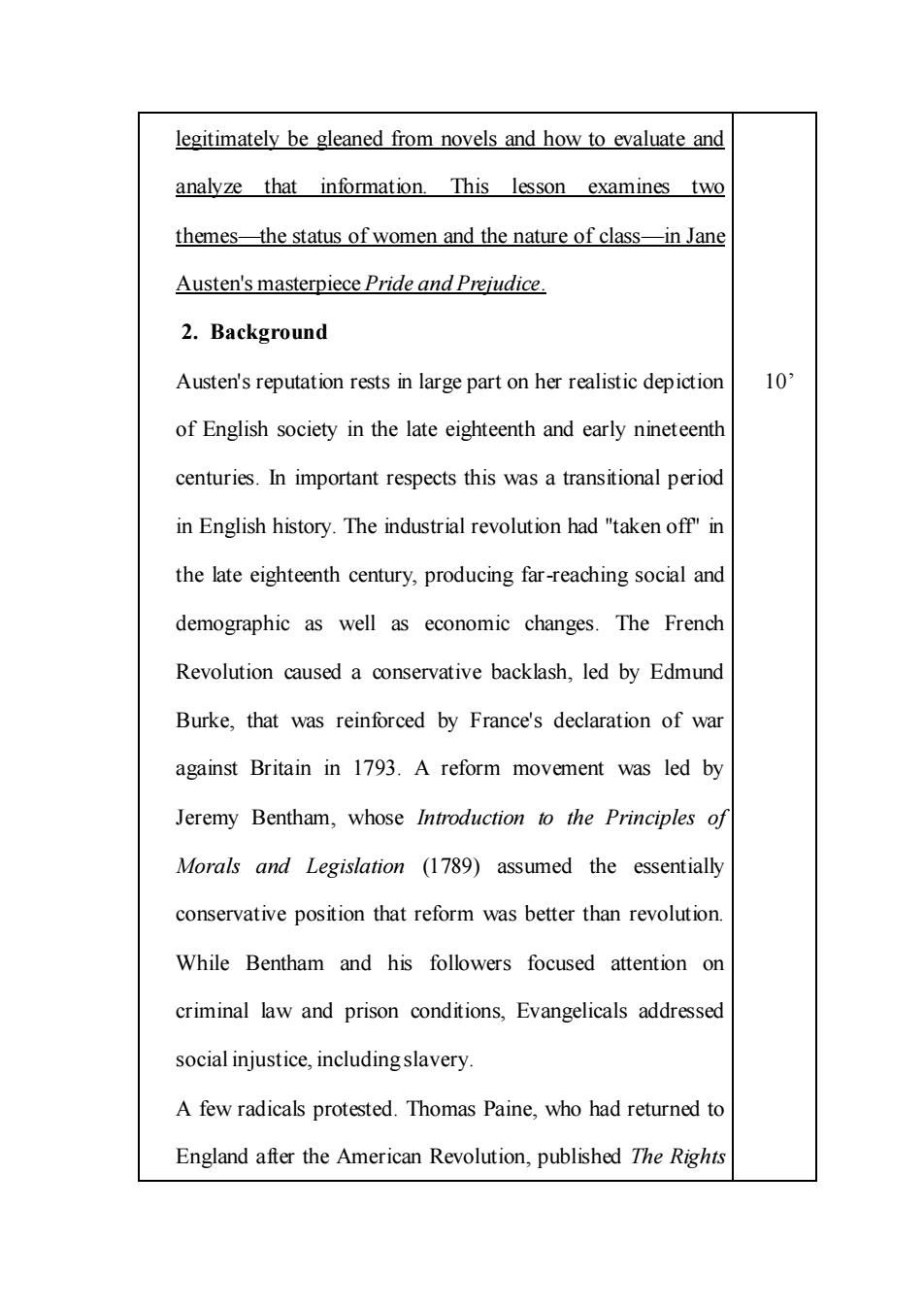正在加载图片...

legitimately be gleaned from novels and how to evaluate and analyze that information.This lesson examines two themesthe status of women and the nature of class-in Jane Austen's masterpiece Pride and Prejudice. 2.Background Austen's reputation rests in large part on her realistic depiction 10, of English society in the late eighteenth and early nineteenth centuries.In important respects this was a transitional period in English history.The industrial revolution had "taken off"in the late eighteenth century,producing far-reaching social and demographic as well as economic changes.The French Revolution caused a conservative backlash,led by Edmund Burke,that was reinforced by France's declaration of war against Britain in 1793.A reform movement was led by Jeremy Bentham,whose Introduction to the Principles of Morals and Legislation (1789)assumed the essentially conservative position that reform was better than revolution While Bentham and his followers focused attention on criminal law and prison conditions,Evangelicals addressed social injustice,includingslavery A few radicals protested.Thomas Paine,who had returned to England after the American Revolution,published The Rights legitimately be gleaned from novels and how to evaluate and analyze that information. This lesson examines two themes—the status of women and the nature of class—in Jane Austen's masterpiece Pride and Prejudice. 2. Background Austen's reputation rests in large part on her realistic depiction of English society in the late eighteenth and early nineteenth centuries. In important respects this was a transitional period in English history. The industrial revolution had "taken off" in the late eighteenth century, producing far-reaching social and demographic as well as economic changes. The French Revolution caused a conservative backlash, led by Edmund Burke, that was reinforced by France's declaration of war against Britain in 1793. A reform movement was led by Jeremy Bentham, whose Introduction to the Principles of Morals and Legislation (1789) assumed the essentially conservative position that reform was better than revolution. While Bentham and his followers focused attention on criminal law and prison conditions, Evangelicals addressed social injustice, including slavery. A few radicals protested. Thomas Paine, who had returned to England after the American Revolution, published The Rights 10’